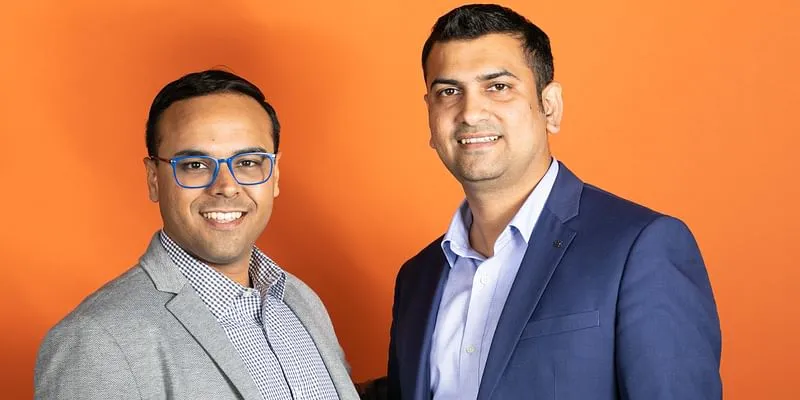Conversational AI startup Uniphore leverages AI to ready for post-coronavirus world
The need for automation is soaring amid the coronavirus crisis as BPO calls swell. Conversational AI startup Uniphore is tapping technology to change the way enterprises engage with consumers and build loyalty in the post-COVID-19 world.
The novel coronavirus has upended the way businesses function across the world. The changes have trickled down to the BPO industry, putting the spotlight back on conversational AI company .
The coronavirus-led economic downturn translates into an upsurge for the BPO industry as call volumes soar. This necessitates the adoption of AI and automation to handle the increased demand, and Uniphore seems poised to deliver transformational customer service and gain.
According to Umesh Sachdev, Co-founder of Uniphore, macro indicators in every previous economic downturn, including 9/11 and the 2008 recession, revealed that call centre traffic around the world goes up.
“People tend to call their banks, hospitals, and insurance companies a lot more. Customers are facing 4x more traffic than earlier. This is now coinciding with an event where call centre workers have also been asked to work remotely,” he says.
“Look at the paradigm here: the word call centre has the word centre in it, which means business was never meant to be remote. It was always meant to be in a place where people sit down and receive calls. There were supervisors working above them. COVID-19 came as a huge shock to the industry,” Umesh says.
On one hand, traffic increased and, on the other, productivity was hit as remote working became the norm.

Uniphore Co-founders Umesh Sachdev and Ravi Saraogi
Transforming customer engagement
Uniphore, which has offices in the US, India, and Singapore, provides businesses with a platform that changes the way enterprises engage with their consumers, build loyalty, and realise efficiencies. The company’s clientele includes BNP Paribas, NTT Data, and PNB MetLife.
Founded by Ravi Saraogi and Umesh Sachdev in 2008, the company uses voice to bridge the gap between people and machines. Its platform, which includes conversational automation and analytics, conversational assistant, and conversational security, aims to transform customer engagement for enterprises.
How are the founders treading the path in this uncertain time?
Umesh says the multifold increase in the number of calls reveals the need for automation and AI.“It’s a rude shock for companies being forced to take this decision. There is uncertainty, but clients want AI to automate their business,” Umesh says.
With John Chambers as an investor and mentor, Uniphore began tracking the COVID-19 crisis in January itself and prepared for the impact.
Waking up to the coronavirus threat
In January, some of Uniphore’s customers in Asia were already keen to delay a few rollouts.
“So, we knew in January that something was wrong in Asia. Seven customers had said they would delay a rollout, but would not give a reason. It hadn’t come to the US or India, but we had to start planning,” Umesh says.
He adds that having John Chambers to confabulate with helped as he said “it smells a lot like 2008 so let’s just start planning”.
Eventually, several clients came to Uniphore with an SOS: implementing technology faster as they realised that there would be a surge in traffic and that they could hire people.
“They needed Uniphore’s automation to supplement their people operation,” Umesh says.
Bracing for COVID-19 impact
The first priority for Uniphore was to hunker down and take stock of the situation. The company has employees in 10 countries, and it decided to shift to the telecommute model.
“By March, even before countries went into a lockdown, 100 percent of our offices were working remotely,” Umesh says. “That was a logistical exercise for us to make sure that it was in place. Then, we had to ensure that every single employee - even if in a remote location- was engaged. We are calling and engaging with them to make sure everyone is healthy and safe. We assured them that the market actually needs Uniphore.”
Uniphore created two war rooms in the leadership team. The first focuses on “preservation” – preserving employee health, existing customer relations, cash flow, and keeping the business alive.
The second war room looks at “opportunities” - where business can be won or working with customers who need help such as deploying software immediately. Uniphore assured clients that they “could implement software now and worry about contracts a few weeks later”.
Uniphore’s R&D team was at the centre of all this change. It went back to the drawing board and figured out what customers were asking for. It quickly repurposed the voice AI technology to be used in the market by focusing on remote sales.
The team ensured that the product could check whether the call centre agent was talking to the right customer, and created a real-time AI product to monitor the call using speech-to-text. It could also determine the quality levels of the engagement. These alterations changed the way the product was sold.
Their model was predominantly feet on street, which is how large enterprise sales worked, and so was the marketing. Coronavirus meant that events and conferences dropped to zero, and only digital marketing thrived.
But, in March the company won six new customers – all very large enterprise customers. Uniphore is set to sign up another six new customers in this quarter, all remotely.
“This probably tells you that travelling and proximity to customers was always overrated. A few events and conferences have utility, but a lot of are overvalued,” Umesh says.
What does the future hold?
Uniphore at present has 22 paying customers and has raised more than $60 million in funding. It has a 310-member team worldwide, with 250 employees in India. It does not disclose revenues, but sources say they are close to $20 million.
In 2019, Grandview Research pegged the BPO industry’s size at $221.5 billion. And in the time of coronavirus, this is set to grow exponentially.
The company says many call centre CEOs are now saying that 40 percent of people may never come back to work in an office. Selling in the SaaS industry may also become more like “inside selling”. People will get on a call, get a customer, negotiate a very legal and complex contract, close a deal, and collect money.
“If all of this can be done remotely, why would we go back to having so many people who are always travelling? We are also looking at the new normal for our business,” Umesh says.
The founder says it is now business as usual in countries such as Japan, Hong Kong, Vietnam, and Indonesia despite the lockdown. “There is neither a slowing nor an acceleration. Singapore and Malaysia are the only two places where we have seen a complete halt in business conversations. But even this market is slowly opening up,” he says.
Uniphore believes business will be robust in the US. Some industries may have been badly hit, but others such as utilities, telecom companies, banks, insurance providers, healthcare providers, and digital payment companies are seeing a surge in business and call centre traffic.
The good news is that, unlike 2008, there is an enormous amount of liquidity with VCs and PEs.
“Some of these funds were raised in last few months. What is likely to happen in the next two to three months is that these firms will get back to investments once they model the entire impact of this downturn,” Umesh says.
He offers advice gleaned from personal learnings to entrepreneurs struggling to survive. “I founded Uniphore in 2008. And I can tell you, in history, companies founded in downturn cycles have tremendous resilience and go on be great businesses in the future. The reason is that perseverance and survivability quotient is very high.”
“Be it a young entrepreneur or a first-time CEO, the only person who can decide the time for you to give up is you; not your investors, parents, or spouse. You’re not a failure until you decide you are,” Umesh says.
(Edited by Teja Lele Desai)




![[Product Roadmap] How Haptik evolved its offerings across the conversational AI spectrum](https://images.yourstory.com/cs/5/730b50702d6c11e9aa979329348d4c3e/Haptik-2-1585052517485.png?fm=png&auto=format&h=100&w=100&crop=entropy&fit=crop)




